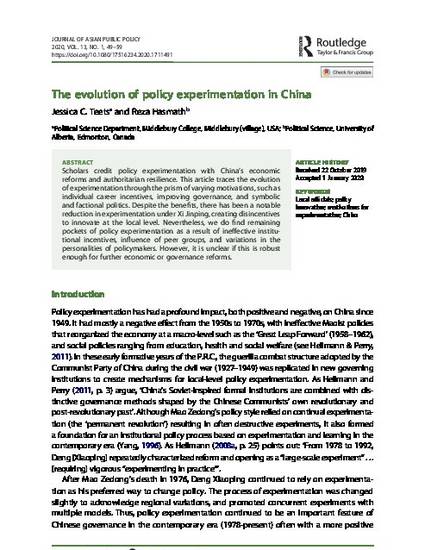
Article
The Evolution of Policy Experimentation in China
Journal of Asian Public Policy
(2020)
Abstract
Most scholars credit policy experimentation with China’s successful economic reforms and continued authoritarian resilience. This article contributes to this policy experimentation literature by providing a systematic overview of the motivations incentivizing Chinese policy entrepreneurs to experiment at local levels. This article traces the evolution of policy experimentation in China through the prism of understanding the varying motivations for experimentation, such as individual career incentives, improving good governance, and symbolic and factional politics. Despite the benefits of policy experimentation, there has been a notable reduction in experimentation in the Xi Jinping era due to the recentralization of political power through “top-level design” and an ongoing anti-corruption campaign. This has effectively created disincentives to innovate at the local level. Nevertheless, we do find remaining pockets of policy experimentation that we argue are due to ineffective institutional incentives, the influence of peer groups, and variations in the individual personalities of policymakers. However, it is unclear if the remaining experimentation is robust enough to assist in further economic reforms or adaptive governance.
Keywords
- local officials,
- policy innovation,
- motivations for experimentation,
- China
Disciplines
Publication Date
2020
Citation Information
Teets, J.C. and Hasmath, R. (2020) "The Evolution of Policy Experimentation in China", Journal of Asian Public Policy 13(1): 49-59.
